Rice Cakes for Rover? A Crunchy Question: Can Dogs Eat Rice Cakes Safely?
- 24 Apr 2025 09:21
Rice cakes – those light, airy, often circular discs made from puffed rice – are frequently perceived as a low-calorie, "healthy" snack for humans. They come in a variety of flavors, from plain to caramel, chocolate, or savory cheese and herb options. Given their seemingly harmless nature, many dog owners pause before tossing one aside and wonder: can dogs eat rice cakes? Is this crunchy human snack a safe treat for our canine companions? While plain rice cakes aren't inherently toxic in the way some foods are, they are far from an ideal treat and certain varieties pose significant dangers. This comprehensive guide, based on veterinary nutritional principles and safety standards, will delve into the specifics of rice cakes, evaluate their safety for dogs, highlight the serious risks associated with flavored versions, and offer healthier alternatives.
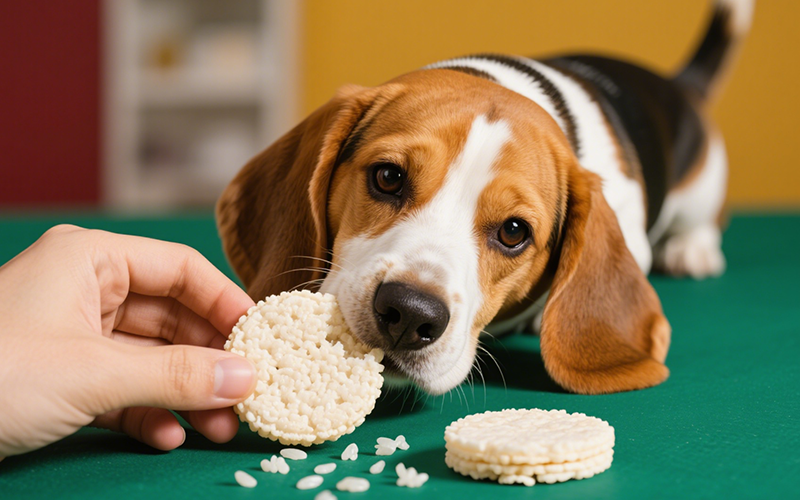
What Exactly Goes Into a Rice Cake?
Understanding the ingredients is the first step in assessing safety. A basic, plain rice cake is incredibly simple, typically containing only one main ingredient:
Puffed Rice: Rice grains (usually brown or white) that have been heated under pressure, causing them to expand rapidly.
Binder (Sometimes): Occasionally, a minimal amount of salt or other binder might be used, but often it's just the puffed rice holding itself together.
However, the simplicity ends there. The vast majority of rice cakes available commercially are **flavored**, and this is where the significant dangers for dogs lie. Flavored rice cakes can contain a wide array of additives, including:
High Levels of Sodium (Salt)
Sugars (Sucrose, Corn Syrup, Caramel)
Artificial Sweeteners (Potentially including the highly toxic Xylitol)
Fats and Oils
Powdered Flavorings (Cheese, Herbs, Spices)
Garlic Powder and Onion Powder (HIGHLY TOXIC to dogs)
Artificial Colors and Preservatives
Chocolate or Yogurt Coatings (Chocolate is toxic; coatings add sugar/fat)
Therefore, the safety discussion must clearly differentiate between completely plain rice cakes and their much more common flavored counterparts.
Evaluating Plain Rice Cakes for Dogs: Safe(ish) but Not Ideal
Let's first consider completely plain, unsalted rice cakes with no added ingredients beyond puffed rice.
Are They Toxic? No, plain puffed rice itself is not considered toxic to dogs. Dogs can generally digest rice; it's often used as a carbohydrate source in commercial dog foods and recommended in bland diets (as plain boiled rice) for digestive upset.
Nutritional Value:** This is where plain rice cakes fall flat. They are essentially puffed air and carbohydrates. They offer negligible amounts of protein, fat, vitamins, or minerals. They are considered "empty calories" – providing energy but little to no real nutritional benefit for a dog whose diet should be based on balanced protein, fats, and essential micronutrients.
Digestibility:** While dogs *can* digest rice, highly processed puffed rice might be less easily digestible for some dogs compared to properly cooked rice. It can also contribute to gas or mild digestive upset in sensitive individuals.
Choking Hazard:** The dry, light, and somewhat brittle texture of rice cakes can pose a choking hazard, especially if a dog tries to swallow large pieces whole or if smaller pieces get stuck.
Blood Sugar Impact:** Being primarily simple carbohydrates, rice cakes can cause a relatively quick spike in blood sugar levels. This isn't ideal, especially for diabetic dogs or those prone to weight gain.
**Conclusion on Plain Rice Cakes:** A tiny piece of a completely plain, unsalted rice cake given very occasionally is unlikely to cause serious harm to a healthy adult dog (beyond the minor choking risk). However, they offer no nutritional benefits and are essentially filler. There are countless healthier and safer treat options available.
The Red Alert Zone: Why Flavored Rice Cakes Are Dangerous for Dogs
Flavored rice cakes are a completely different story and should **never** be intentionally fed to dogs due to numerous potentially toxic or harmful ingredients:
1. Toxic Seasonings: Garlic and Onion Powder
This is arguably the **most critical danger**. Many savory flavored rice cakes (like cheese, sour cream & onion, herb blends) contain garlic powder and/or onion powder.
Allium Toxicity:** Garlic and onions belong to the *Allium* family. They contain compounds (organosulfides) that damage red blood cells in dogs, leading to hemolytic anemia. This condition can be life-threatening.
Symptoms:** Signs might be delayed for several days and include lethargy, weakness, pale gums, rapid breathing, increased heart rate, vomiting, diarrhea, and potentially collapse.
Potency:** Powders are concentrated forms, meaning even small amounts in seasoning can be toxic, especially for smaller dogs or with repeated exposure.
The presence of garlic or onion powder automatically makes a flavored rice cake unsafe.
2. Excessive Sodium (Salt)
Flavored rice cakes are often very high in sodium to enhance taste.
Risks:** High salt intake can lead to excessive thirst, dehydration, vomiting, diarrhea, increased blood pressure (risky for dogs with heart conditions), and in severe cases, sodium ion poisoning (hypernatremia), which involves neurological symptoms like tremors, seizures, and coma.
3. Artificial Sweeteners (Especially Xylitol)
"Light," low-calorie, or sweet-flavored rice cakes (like caramel or chocolate-flavored *without actual chocolate*) may contain artificial sweeteners.
Xylitol Toxicity:** Xylitol is **extremely poisonous** to dogs. It causes a rapid, massive insulin release, leading to a dangerous drop in blood sugar (hypoglycemia) and potential acute liver failure. Even tiny amounts can be fatal. Symptoms include vomiting, weakness, collapse, seizures. **This is an emergency.**
Other Sweeteners:** While others like aspartame or sucralose aren't considered acutely toxic like xylitol, they offer no benefit and can potentially cause digestive upset.
**Always assume any sugar-free or artificially sweetened human product could contain xylitol and keep it away from dogs.**
4. Sugars and Fats
Sweet varieties (caramel, apple cinnamon) are loaded with sugar, contributing empty calories, obesity risk, dental issues, and potential for diabetes. Some savory types might also contain added fats or oils, increasing calorie count and potentially contributing to pancreatitis risk in sensitive dogs if consumed in large amounts.
5. Chocolate Coating
Chocolate-coated rice cakes contain theobromine, which is toxic to dogs. The darker the chocolate, the higher the theobromine concentration and the greater the danger. Symptoms range from vomiting/diarrhea to hyperactivity, tremors, seizures, and heart problems.
6. Other Additives
Artificial colors, flavors, and preservatives offer no benefit and can occasionally trigger allergies or sensitivities. Given these numerous and serious risks, the answer to "can dogs eat rice cakes?" when referring to flavored varieties is an emphatic **NO**.
What If My Dog Accidentally Eats a Rice Cake?
Accidents happen. If your dog consumes a rice cake, follow these steps: 1. **Identify the Type & Quantity:** Was it plain or flavored? If flavored, what kind? How much did they eat? This information is crucial for risk assessment. 2. **Check Ingredients (If Possible):** If you have the packaging for a flavored rice cake, IMMEDIATELY check the ingredient list for **garlic powder, onion powder, xylitol, and chocolate.** 3. **Remove Remaining Rice Cakes:** Secure the package to prevent further ingestion. 4. **Contact Your Veterinarian or Emergency Pet Clinic IMMEDIATELY:** * **If Flavored (especially with garlic/onion/xylitol/chocolate) or Large Quantity Eaten:** Call right away. This is potentially an emergency. Provide all details: type, amount, ingredients (if known), time of ingestion, dog's weight/breed. Follow their instructions precisely. They may advise bringing your dog in immediately for decontamination (inducing vomiting safely) or treatment. * **If Plain & Only a Small Amount:** Still call your vet for advice. While less likely to be an emergency, they can advise on monitoring for choking or mild digestive upset based on your dog's size and health history. 5. **Monitor Closely:** If monitoring at home (only if advised by a vet for small amounts of plain rice cake), watch for choking, gagging, vomiting, diarrhea, lethargy, loss of appetite, or signs of abdominal pain. Report any concerns to your vet. For flavored cakes, monitor for specific toxicity symptoms (anemia signs, neurological issues, severe G.I. distress) as advised by your vet. 6. **Do NOT Induce Vomiting at Home:** Unless specifically instructed by your vet.
Rice Cake Safety Summary for Dogs
This table summarizes the safety considerations:
| Rice Cake Type / Aspect | Safety Level / Concern for Dogs | Details & Recommendation |
| Plain, Unsalted Rice Cakes | Low Risk (but not beneficial) | Not toxic, but empty calories, low nutritional value, minor choking/G.I. upset risk. Not recommended as a regular treat. Tiny occasional piece unlikely harmful to healthy dogs. |
| Flavored Rice Cakes (Savory - Garlic/Onion) | DANGEROUS / HIGHLY TOXIC | Garlic/Onion powder causes hemolytic anemia. High salt risk. **AVOID COMPLETELY.** Potential emergency if ingested. |
| Flavored Rice Cakes (Sweet - Sugar/Artificial Sweeteners) | DANGEROUS / POTENTIALLY TOXIC | High sugar = unhealthy. **Xylitol risk** in sugar-free versions = extremely toxic, potentially fatal. **AVOID COMPLETELY.** |
| Chocolate-Coated Rice Cakes | DANGEROUS / TOXIC | Chocolate (theobromine) is toxic to dogs. **AVOID COMPLETELY.** |
| Overall Answer to: Can dogs eat rice cakes? | Generally NO. While tiny amounts of plain rice cake might be tolerated, they offer no benefit. Flavored rice cakes are dangerous due to toxic seasonings (garlic/onion), high salt, potential xylitol, sugar, and chocolate. Avoid feeding rice cakes to dogs. | |
Navigating Pet Food Safety with Tech: The PettureX App
When faced with confusing questions about pet food safety or potential toxicities, having access to quick information can be invaluable while preparing to consult your veterinarian. The **PettureX** app is designed to provide support for pet owners in these moments. PettureX features include:
24/7 AI Veterinary Consultation: Use the AI chat to ask general questions like "Why is onion powder bad for dogs?" or "What are signs of sodium poisoning?". Get immediate, AI-generated information to better understand the risks involved. *This AI service provides general knowledge and cannot replace professional veterinary diagnosis or treatment advice.*
Image Recognition for Pet Health:** Assists in identifying visual health concerns, supporting communication with your vet.
Animal Species Identification:** Useful for identifying unknown plants or items your pet might encounter.
PettureX can serve as a helpful resource for quick information access, empowering you to have more informed conversations with your veterinarian about your pet's health and safety.
Healthier, Safer Alternatives to Rice Cakes
Instead of offering nutritionally empty and potentially dangerous rice cakes, choose treats that are genuinely safe and beneficial for your dog: * **Dog-Safe Vegetables:** Pieces of carrot, cucumber, celery, green beans, or plain cooked sweet potato/pumpkin. * **Dog-Safe Fruits (in moderation):** Small amounts of apple slices (no core/seeds), blueberries, banana, watermelon (seedless/rindless), or raspberries. * **Plain Cooked Meat:** Small pieces of unseasoned, cooked chicken, turkey, lean beef, or fish (no bones or skin). * **Commercial Dog Treats:** Select high-quality treats formulated for dogs, checking the ingredient list and choosing options low in calories and artificial additives. Dental chews can also be beneficial. * **Puzzle Toys:** Stuff a Kong or similar toy with a small amount of xylitol-free peanut butter, plain yogurt (if tolerated), or their regular dog food for mental enrichment. Always introduce new treats slowly and ensure they make up no more than 10% of your dog's daily caloric intake.
Conclusion: Skip the Rice Cakes for Your Canine Friend
To definitively answer "can dogs eat rice cakes?": It's best to **avoid them entirely**. While a tiny piece of plain, unsalted rice cake might not cause immediate harm, it offers zero nutritional value and poses minor risks. Flavored rice cakes, however, are firmly in the danger zone due to potentially toxic ingredients like garlic, onion, xylitol, excessive salt, sugar, and chocolate. The risks associated with flavored varieties are severe and can lead to life-threatening emergencies. Protect your dog's health by sticking to safe, species-appropriate treats. Keep all rice cakes, especially flavored ones, securely stored where your dog cannot reach them. If accidental ingestion occurs, contact your veterinarian immediately for guidance. Making informed decisions about treats is a key part of responsible pet ownership, and in the case of rice cakes, the decision should be to choose a healthier, safer alternative for your beloved companion.
Related
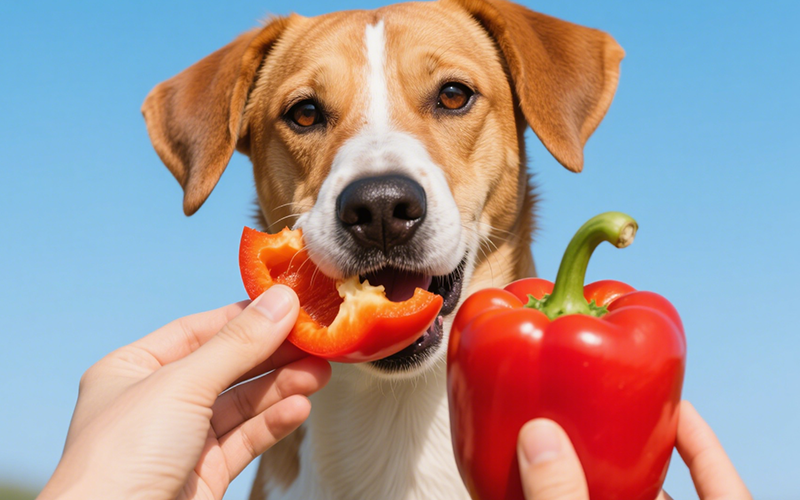
Crunchy & Colorful: Can Dogs Eat Red Bell Peppers Safely? A Vet-Approved Guide
- 24 Apr 2025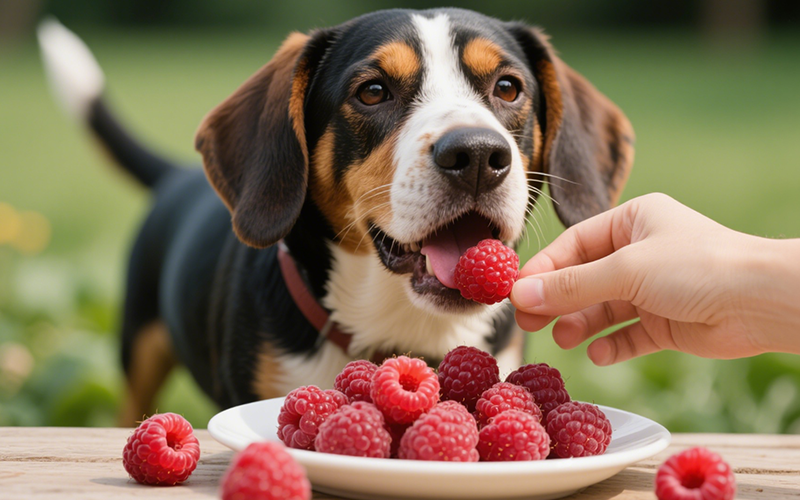
Raspberries for Rover? A Vet's Guide to This Berry Good Treat for Dogs
- 23 Apr 2025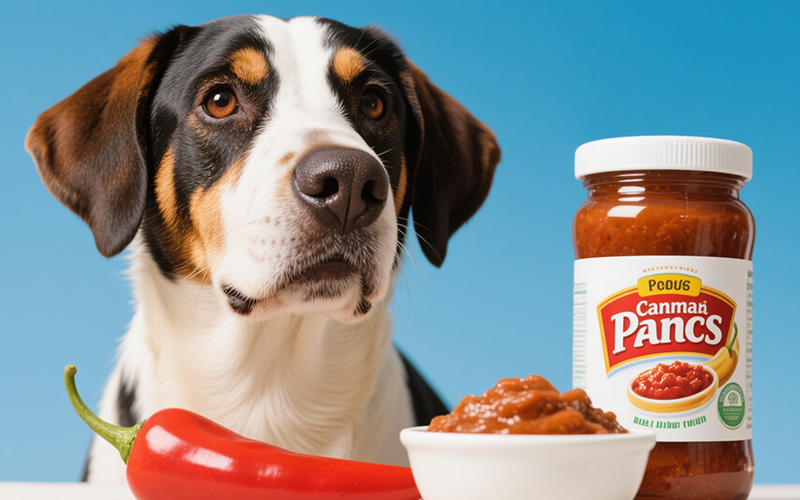
Ranch Dressing Dilemma: Can Dogs Safely Indulge? A Deep Dive into Why It's a Bad Idea
- 23 Apr 2025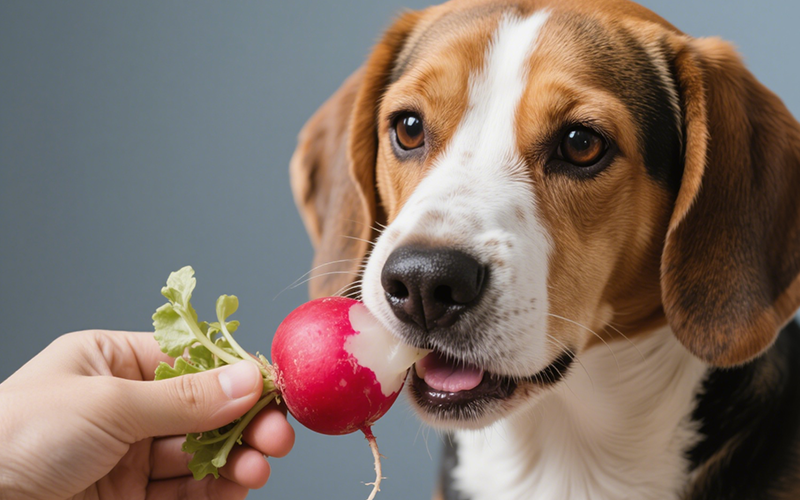
Radish Bites for Your Buddy? A Vet-Reviewed Guide on Whether Dogs Can Eat Radishes
- 22 Apr 2025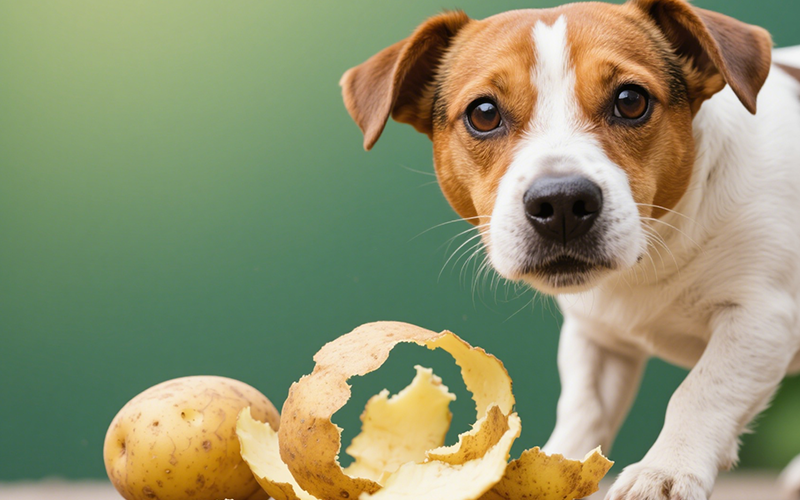
Potato Peels for Pooches? Unpeeling the Risks and Facts for Dog Owners
- 22 Apr 2025
Crunchy Curiosity: Can Dogs Safely Snack on Pork Rinds? A Deep Dive
- 21 Apr 2025
Pomegranate Seeds and Pooches: A Deep Dive into Whether Dogs Can Safely Indulge
- 21 Apr 2025
Can Dogs Eat Peaches? Vet Explains Benefits, Cyanide Risks & Safe Serving
- 16 Apr 2025
Can Dogs Eat Mulberries? Vet Explains Safety, Benefits & Potential Risks
- 16 Apr 2025
Can Dogs Eat Mozzarella? Vet Explains the Cheesy Truth (Risks & Benefits)
- 16 Apr 2025
